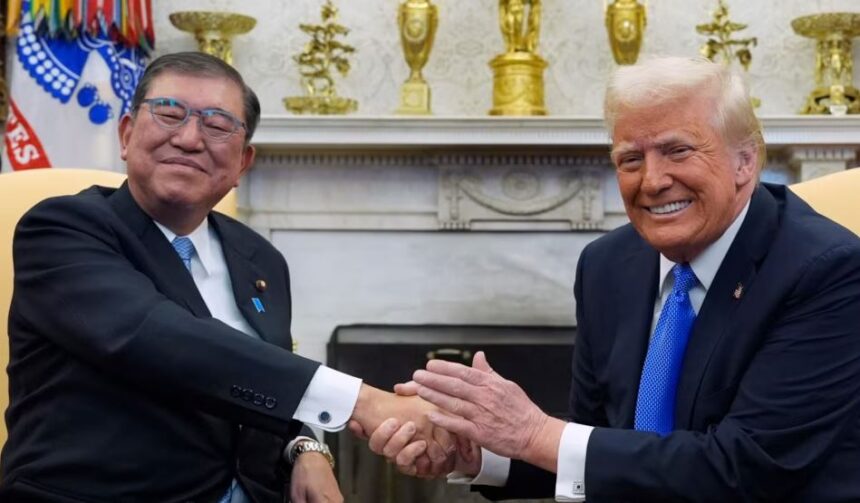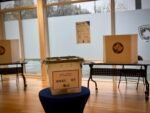President Donald Trump and Japanese Prime Minister Shigeru Ishiba met at the White House on Friday, declaring a “new golden era” in U.S.-Japan relations. The visit comes amid early foreign policy decisions by President Trump that have unsettled both allies and adversaries.
Many Japanese were concerned about Ishiba’s visit to the White House, but he appeared to have built a strong rapport with President Trump. The Japanese prime minister praised Trump, expressing admiration for his fearless spirit in winning the election and fulfilling his mission, even after an assassination attempt.
“You will implement your initiative to Make America Great Again. And you will also double your efforts to bring peace to the world. This is why God has saved you,” Ishiba stated.
The leaders announced the beginning of a “new golden era” in U.S.-Japan relations. Ishiba’s visit coincided with Trump’s early foreign policy moves that have increased pressure not only on U.S. adversaries but also on its allies and partners. On Friday, Trump again threatened reciprocal tariffs.
“We will impose reciprocal tariffs on any country that forces us to pay such high tariffs,” Trump said.
Ishiba declined to comment on whether Japan would retaliate.
Another contentious issue between the two nations is Japanese steel manufacturer Nippon Steel’s $15 billion bid to acquire Pittsburgh-based U.S. Steel. Former President Joe Biden blocked the deal in his final weeks in office, citing national security concerns. On Friday, Trump signaled openness to negotiations.
“They will explore the possibility of investment instead of acquiring the American company. We didn’t like the idea. ‘U.S. Steel’ is a very important company for us,” Trump said.
Japan agreed to increase investments in key U.S. sectors and purchase more American liquefied natural gas, both significant elements of Trump’s agenda.
“They are strategically leveraging their position while aligning with President Trump’s interests, such as maintaining U.S. forces in Japan and ensuring continued American engagement in the Indo-Pacific,” said expert Jeffrey Hornung of the Rand Corporation.
In the security domain, the U.S. and Japan are expected to continue cooperation to counter North Korea’s nuclear threat and China’s aggression in the Taiwan Strait, South China Sea, and East China Sea.
Current defense agreements between Washington and Tokyo, including trilateral commitments with allies like South Korea and the Philippines, are set to continue.







